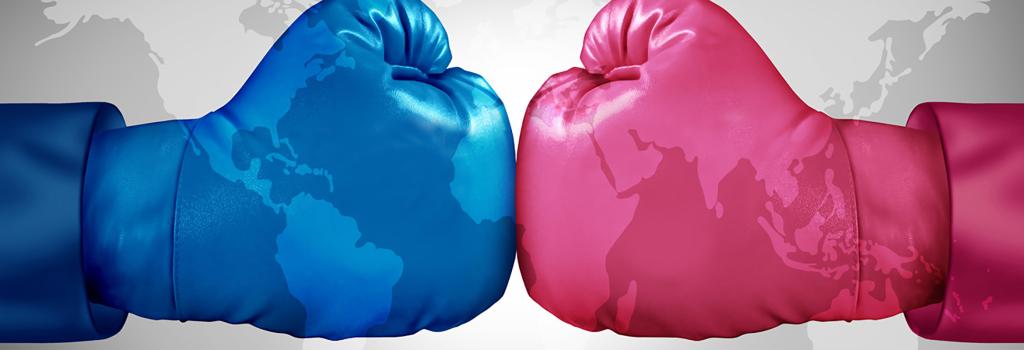
Forget the suit and tie brigade you see in adverts. High-tech and connected, women are in fact the fastest growing segment of corporate travellers in the world today.
Almost half of women who travel, travel for business, according to a recent report published by Skift. And travel companies have recognised this and are starting to adapt their policies and services to cater to the needs of the female traveller.
“It’s not about being treated differently, it’s about being treated appropriately,” says Rheanna-Marie Hall, editor at Maiden Voyage, a specialist resource for female business travellers.
Women encounter very different challenges than men when travelling for business. And no, we are not talking about the need for make-up mirrors or hairdryers in hotels … although these will obviously be welcome for most road warriorettes.
According to the Women in Business Travel 2016 Report, a study conducted by Maiden Voyage, almost a third of female business travellers have suffered harassment or petty theft while travelling.
Meanwhile, 63.96% of female business travellers say there are destinations they would not travel to that they would probably travel to as a man, such as the UAE and Saudi Arabia.
“Women travellers need to be constantly be vigilant, and take into the account whether the country is safe for them to travel alone,” says Chanele Adams, frequent traveller and project assistant at the Association of European Parliamentarians with Africa (AWEPA).
For corporate traveller and partner at a law firm in Durban Trudie Nichols, safety is paramount when travelling alone as a woman, which is why it’s important to be able to have a travel professional at her side.
“Knowing that you are able to contact your travel advisor at any time during the trip helps alleviate the stress of travel,” says Nichols. “This is especially true if you are detained or delayed by customs or authorities in another country; if you miss your flight; if a delay on one flight results in missing your connecting flight and just to advise and assist with any travel issues as they arise whilst you are in transit.”
Nichols recalls an incident where she thought she would miss a connecting flight. She contacted her travel consultant at Corporate Traveller who told her she would stay at the office until the situation was resolved. “She had accommodation lined up for me and a new flight the next morning in case I didn’t make my flight,” she says, adding that although she managed to catch her flight, it was reassuring to know everything was taken care of.
Nichols advises fellow women travellers to always opt for direct flights to their destination. “If you must have a connecting flight, then the correct time period between flights is essential. It needs to cater for possible delays but not result in you sitting at the airport for five hours or more between flights.”
“The approach to Duty of Care most companies take is non-gender specific and very often women business travellers say they feel under-prepared to deal with the incidents they encounter,” says Oz Desai, GM Corporate Traveller. He adds it is crucial for all travellers to know the risks of their destination before travelling.
Desai explains that one of the benefits of using a reputable TMC like Corporate Traveller is that the consultants will make sure the hotel they book is in a safe part of town, that transport is reliable and that they have communicated the cultural differences in the countries the traveller is visiting. Desai adds that when possible, they’ll also book hotels that offer female friendly rooms and services. These usually include certain safety features such as a 24-hour manned reception and two locks on the door.
Key to safe travel for all travellers, according to Desai, is pre-trip communication as this can minimise – if not eliminate – a lot of potential threats. Women travellers can for example face considerable abuse when walking around in a sleeveless top in a country with certain religious sensitivities. “Knowing these kinds of cultural differences can make the world of difference,” says Desai.
Desai explains Corporate Traveller doesn’t only make sure women travellers feel safe, but ensures all travellers feel safe. “It’s about personalising the travel experience for each traveller, making sure they are aware of all the risks they face at their destination.”
Here are some tips from Corporate Traveller to keep in mind when travelling on business solo:
- Take two photocopies of your passport and credit cards. Take one photocopy along and keep one at home or with a friend or family. If someone steals your bag, you’ll have a backup.
- Set up transportation ahead of time with your TMC. Ask your TMC for details of where you are going and how you’re going to get there. Make sure you know the name and phone number of your driver so that you can verify his or her identity.
- Keep your smartphone charged. It’s not just a business necessity, but also a smart safety precaution.
- Get someone from home or from the office to call you at certain times to make sure everything is still fine. Your Corporate Traveller consultant will also check in with you from time to time.
- If you’re dining alone, consider sitting at the bar where the barman can assist you in case of unwanted attention.
- When travelling in Africa, ask your TMC about hotels that offer women only floors. These are usually well secured with extra safety precautions designed for female travellers.
- Consider the local culture and sensitivities, and dress and behave accordingly. This should be a key part of your initial preparation.
- Make sure you know who to phone in case of emergency and have the number in your phone or preferably memorised.
Ready to check-in with better value?
Contact your Expert Travel Manager to find out more about our preferred partner Shangri-La